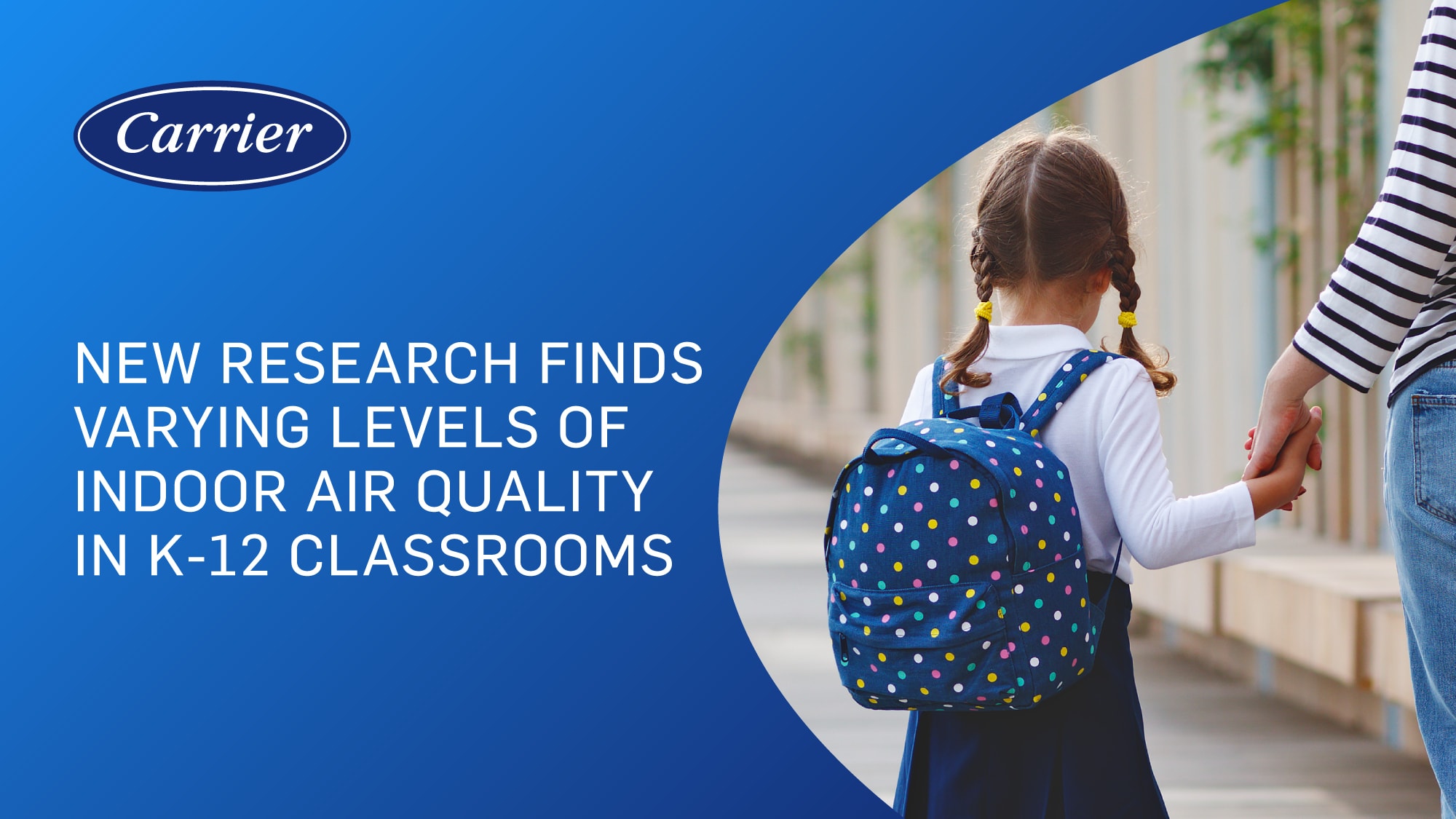New Research Finds Varying Levels of Indoor Air Quality in K-12 Classrooms
Initial research findings from the University of Colorado Boulder support need for building assessments

PALM BEACH GARDENS, Fla., Jan. 6, 2021 — New research from the University of Colorado Boulder found that classrooms in K-12 schools may have variability in ventilation and air changes per hour (the air in a defined space that is replaced each hour), with 60% of the classrooms studied below the recommended ventilation levels. The study, which was sponsored by Carrier Global Corporation (NYSE: CARR), supports the case for indoor air quality improvement in classrooms to further protect the health of those inside.
The ongoing research assesses how air changes per hour in classrooms can reduce the amount of particulate matter (PM) in the air, which may include pollen and aerosolized pathogens, in occupied classrooms within Denver Public Schools. The approximately 20 school buildings involved in the study vary in size and age, ranging from modern buildings to facilities dating back to the 1900s.
“The classrooms showed a wide range of air change rates, with 60% of the classrooms tested demonstrating an opportunity to improve air quality,” said Dr. Mark Hernandez, principal investigator of the project and Professor Environmental Engineering and Director of the Environmental Engineering Microbiology and Disinfection Lab at the University of Colorado.
A recent study from Harvard University’s T.H. Chan School of Public Health recommends four to six air changes per hour, with greater than six air changes per hour being ideal. The findings were published in Schools for Health: Risk Reduction Strategies for Reopening Schools (2020).
“Air quality assessments in classrooms can provide critical insights around indoor air quality and are a key part in of the overall strategy to improve the health of buildings. Through assessments, Carrier can provide a tailored suite of products and services to improve overall air quality and efficiency,” said Rajan Goel, senior vice president, Carrier Building Solutions Group and leader of Carrier’s Heathy Buildings Program.
“For Denver Public Schools, this project was extremely useful for helping us assess the current air quality in classrooms so we can best determine how to allocate school funding for additional mitigation,” said Mike Eaton, Interim Deputy Chief Operating Officer, Denver Public Schools. “Offering a targeted, affordable building strategy that can be deployed without disrupting classroom instruction has far exceeded our expectations,” he added.
Carrier has a legacy of working with leading institutions to advance the body of knowledge and this study builds on prior research supported by Carrier, which reviewed the effect ventilation can have on cognitive function. The Impact of Green Buildings on Cognitive Function study, also conducted by Harvard’s T.H. Chan School of Public Health, found a doubling of cognitive function test scores among study participants in green buildings with enhanced ventilation.
To learn more about scheduling a building assessment, visit Corporate.Carrier.com/HealthyBuildings to contact a Carrier Healthy Buildings expert. Carrier’s Healthy Buildings Program and its solutions can help assess, operate, maintain and upgrade buildings to help protect what’s most important – the health of those inside.
About Carrier
As the leading global provider of healthy, safe and sustainable building and cold chain solutions, Carrier Global Corporation is committed to making the world safer, sustainable and more comfortable for generations to come. From the beginning, we’ve led in inventing new technologies and entirely new industries. Today, we continue to lead because we have a world-class, diverse workforce that puts the customer at the center of everything we do. For more information, visit www.Corporate.Carrier.com or follow us on social media at @Carrier.